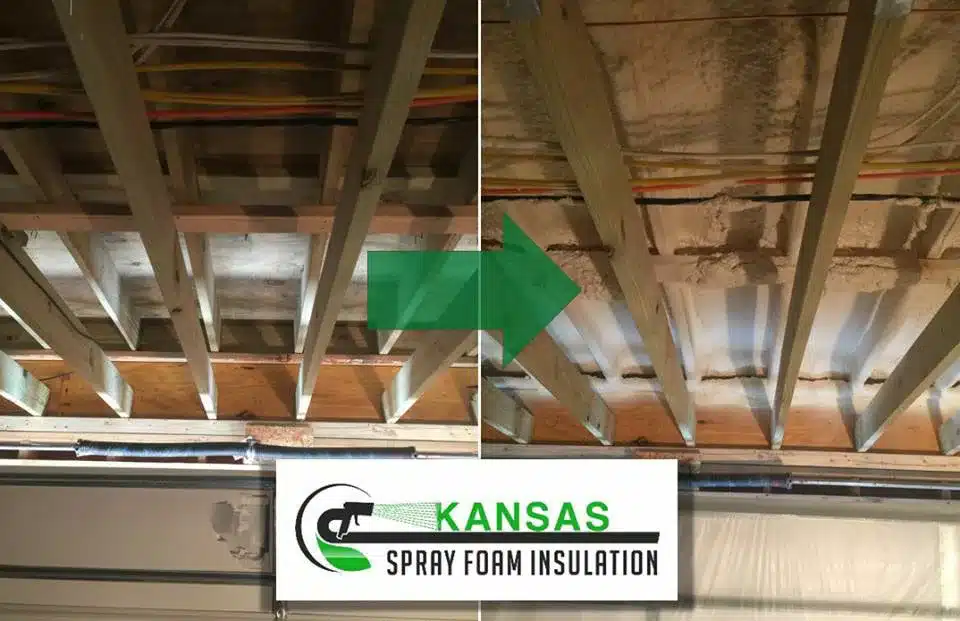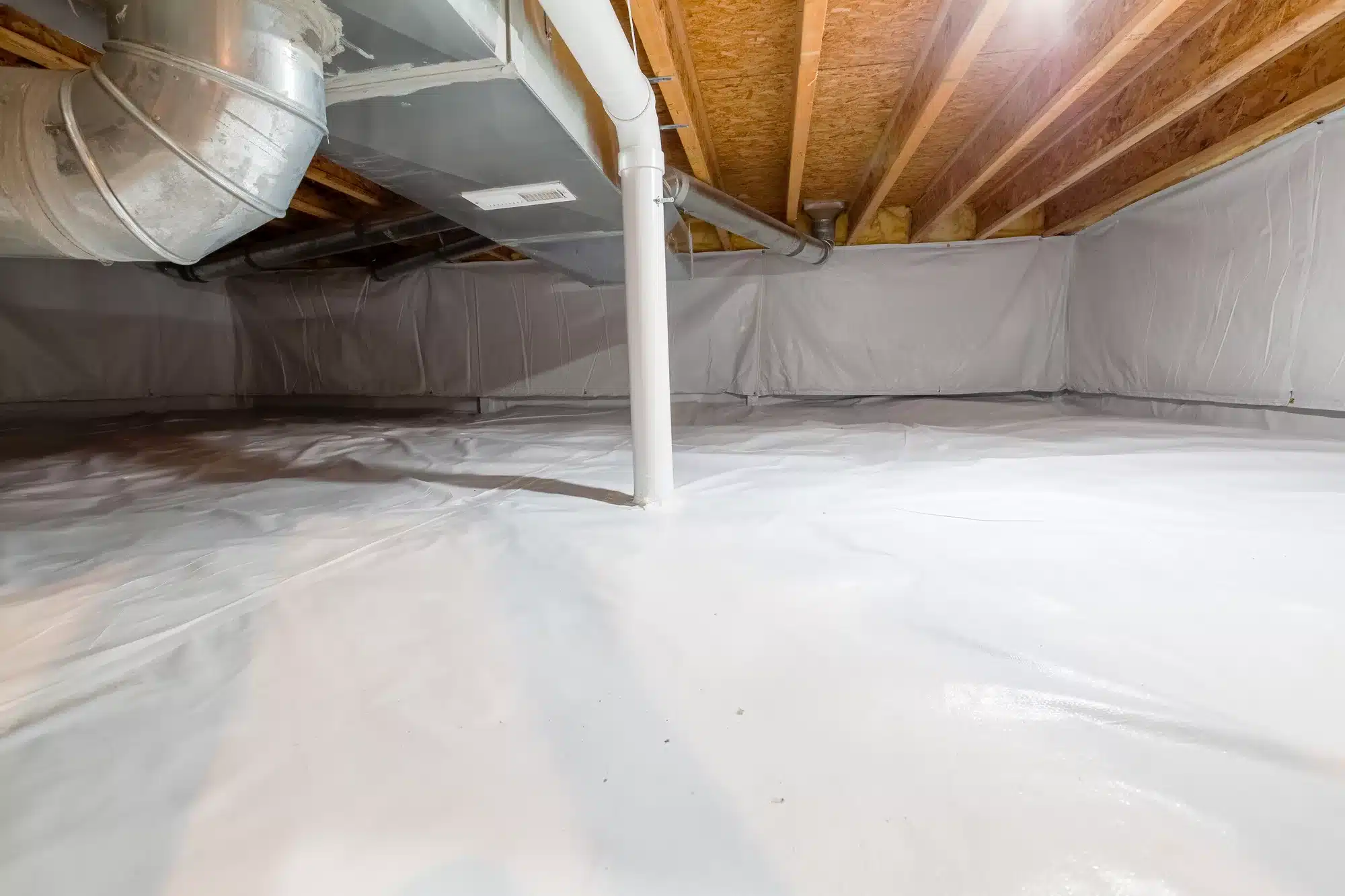Basement and Rim Joist Insulation
Seal the Savings, Banish the Chills, and Enjoy Year-Round Comfort!
Do you often find yourself frustrated with chilly drafts making their way into your home, particularly in the basement and around the rim joists? If so, it’s high time to regain command over your home’s comfort and energy efficiency, and basement and rim joist insulation could be the solution you’ve been seeking.
Say goodbye to those pesky drafts that tend to infiltrate your living space, especially in the basement. By choosing Kansas Spray Foam Insulation, you can effectively seal off these entry points, ensuring a consistently cozy and draft-free environment. This upgrade not only enhances comfort but also bolsters your home’s energy efficiency, resulting in lower heating and cooling costs throughout the year.
Moreover, spray foam insulation serves as a formidable moisture barrier, keeping your basement dry and preventing potential issues like mold and structural damage. Its versatility and effectiveness make it a smart investment for increasing both your home’s value and your overall quality of life. Ready to transform your home into a more comfortable and energy-efficient haven? Consider the benefits of spray foam insulation for your basement and rim joist, and say hello to a cozier, cost-effective living space.

Why Basement and Rim Joist Insulation Matters:
Say Goodbye to Drafts:
Without proper insulation, your rim joist, which is essentially a piece of wood, is the only thing standing between your home and the outside world. This means hot and cold air, along with allergens, dust, pests, dust mites, mold spores, and pollen, can sneak in through cracks and gaps.
Seal Cracks and Gaps:
Spray foam insulation is like a superhero for your rim joist. It expands to seal all those pesky cracks and gaps, acting as a barrier against unwanted intruders. It even prevents condensation from forming on the rim joist, which can lead to mold and rot in your home.
Boost Energy Efficiency:
Insufficient insulation in your basement and rim joists can lead to significant energy loss. By properly insulating these areas, you’ll keep your home warmer in the winter and cooler in the summer, all while reducing your energy bills.
Prevent Moisture Issues:
Basements are notorious for moisture problems, which can lead to mold and structural damage. Quality insulation can act as a moisture barrier, helping to maintain a dry and healthy environment.
Enhance Home Value:
A well-insulated home is a valuable home. Basement and rim joist insulation not only increases your home’s energy efficiency but also its resale value, making it a smart investment for the future.
Easy Installation:
The process of insulating your basement and rim joists is relatively straightforward, and it can be done by a professional or as a DIY project, depending on your comfort level and expertise.
Environmental Benefits:
Increasing your home’s energy efficiency reduces your carbon footprint. It’s a small change that can make a big difference in the fight against climate change.
Ready to take the next step toward a more comfortable, energy-efficient space? Explore our basement and rim joist insulation options today. Seal the savings, banish the chills, and enjoy a home that’s cozy and cost-effective year-round. Don’t let drafts and high energy bills get the best of you – insulate your basement and rim joists to create a comfortable space.
Ready to Upgrade Your Insulation?

